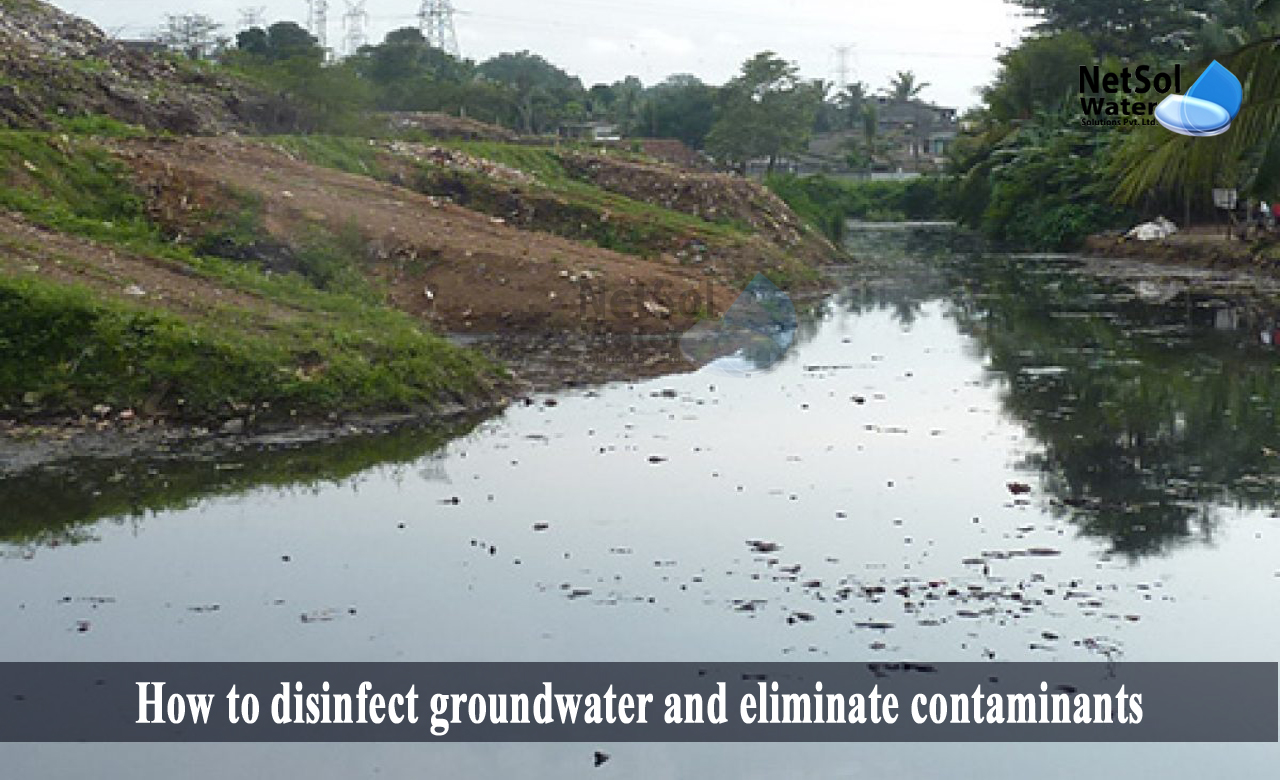Groundwater can become contaminated by anything, including road salts, hazardous waste, landfills, and pollutants in the atmosphere. It's essential that groundwater used in a public municipal system be disinfected, in accordance with local, national, and international regulations.
Why disinfecting groundwater is imperative?
Usually, disinfection comes last when groundwater is prepared for human consumption. In order to get rid of any leftover contaminants including bacteria, viruses, and parasites, the Centers for Disease Control and Prevention (CDC) recommends disinfecting water.
Additionally, disinfection is necessary to keep the water free of various pathogens, as it travels through pipes to businesses and residences. Ineffective groundwater treatment can lead to the spread of illnesses like hepatitis, diarrhoea, and E. coli-related illness.
How can we disinfect groundwater and eliminate contaminants?
· Chlorination
There are a variety of techniques available for disinfecting groundwater. One of the most common techniques for making groundwater safe for human consumption is chlorination.
The bulk of water disinfection systems employ some form of chlorine. Chlorine is quite cheap to use and destroys the majority of harmful germs in water. In municipal facilities, groundwater is typically treated using one of three forms of chlorination.
1: Chlorine (gas) is described as a yellow-green gas that is very effective at eliminating pollutants. However, it is exceedingly hazardous in gas form and can even be fatal in small doses.
2: Liquid chlorine is also referred to as sodium hypochlorite. The fact that bacteria typically cannot develop a resistance to bleach is one of its advantages. Liquid chlorine is simpler to use than gas, but it must be handled properly because it can be quite corrosive.
3: Calcium hypochlorite is another name for chlorine in its solid state. Water may easily dissolve this kind of chlorine. The solid form can be caustic and needs to be stored properly, much like the liquid form does.
It also smells strong. The major drawback is the fact that organic materials can react with chlorine in solid form, and possibly result in an explosion or fire.
Cleaning by-products
DBPs, or disinfection by-products, have grown in importance in recent years. One of the most important aspects of the disinfection procedure is preventing by-products from contaminating the environment.
A water supply system must ensure that disinfection by-products are kept to a minimum, and that those that are produced are disposed of correctly. Sometimes it is advised to start the chlorination process by lowering the amount of organic matter in the water. By doing this, you'll produce less by-products overall.
Treatment of Municipal Groundwater with Netsol Water Solutions
Regardless of how big or small your municipal water system is, it's critical to locate groundwater treatment options that meet your unique requirements. It's important to pick a water treatment firm that has the knowledge and skills to properly treat the water, in your facility in accordance with legal requirements.
Netsol Water can offer an unbiased water analysis to identify the best ways of purification, and upkeep for your water supply. Contact us if your municipal water system needs high-quality groundwater treatment. All of your water treatment demands can be met, in a secure and efficient manner.
Netsol Water is Greater Noida-based leading water & wastewater treatment plant manufacturer. We are industry's most demanding company based on client review and work quality. We are known as best commercial RO plant manufacturers, industrial RO plant manufacturer, sewage treatment plant manufacturer, Water Softener Plant Manufacturers and effluent treatment plant manufacturers. Apart from this 24x7 customer support is our USP. Call on +91-9650608473, or write us at enquiry@netsolwater.com for any support, inquiry or product-purchase related query.



